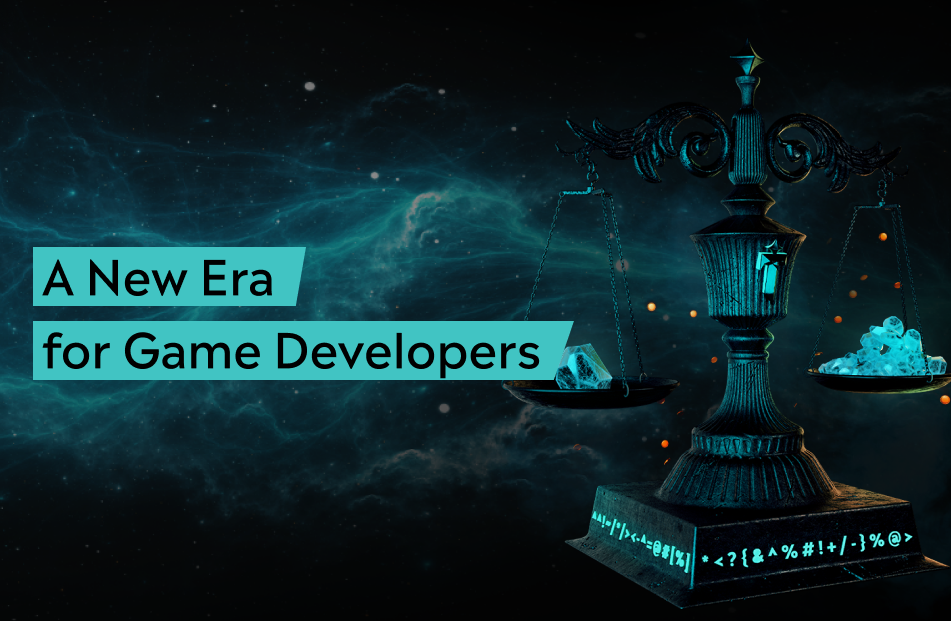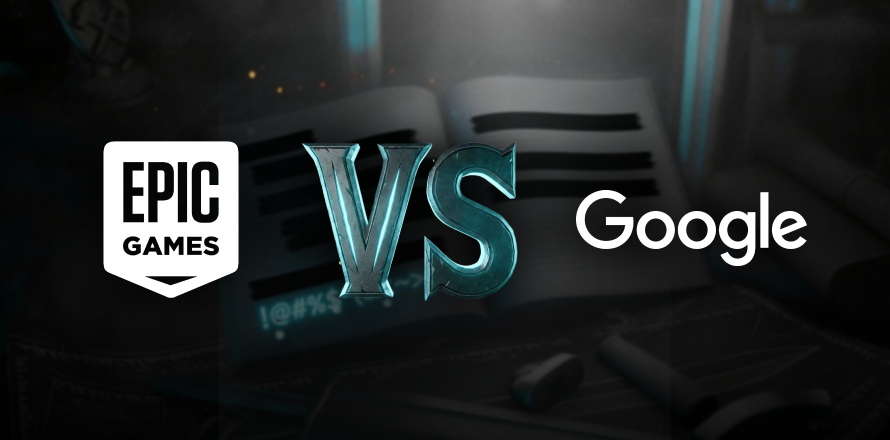Google’s Monopoly Ruling: A New Era for Mobile Game and App Developers
We're entering the era of open ecosystems with more developers control and freedom of creativity.

The mobile app and game development landscape might have just changed forever. In a high-profile case brought by Epic Games, a judge ruled on October 7th that Google must allow third-party app stores and payment systems on Android devices.
The Google platform ruling gives mobile developers a never seen before opportunity to reshape how they distribute their games and manage in-app purchases, reducing reliance on Google Play while opening new monetization options.
The impact of this ruling cannot be overstated: developers now have more freedom to innovate, build direct relationships with their communities, and control their revenue streams.
A Paradigm Shift for Mobile Game Developers
For years, mobile app and game developers had to work within a restrictive framework laid out by Google Play and the iOS App Store for the app to be successful . While some alternative app stores existed—like Samsung’s Galaxy Store—they had minimal impact due to Google’s monopoly on Android devices.
This led to several challenges for developers:
- High fees: Google charged developers up to 30% on in-app purchases.
- Discoverability: Developers were at the mercy of Google’s algorithms to gain visibility and be discovered, leading to an approach of ‘developing for the algorithm.’
- Lack of direct relationships with gamers: Transactions happened through Google, meaning developers had limited control over their customer interactions and data. Whatever data they were receiving could change based on Google’s discretion.
- No incentive for platforms to invest in developer relations: With no competition, Google wasn’t pressured to offer more favorable terms.
The Google monopoly court ruling changes everything. Developers now have the freedom to choose alternative app stores as well as payment processors that align with their business needs. They can even choose alternative payment processors for apps they list on Google’s Play Store.
With this ruling, developers can explore third-party app stores and payment processors to partner with the right provider that fits their needs the best, without fear of removal or penalties.
While this isn’t the first time such a ruling came down —South Korea previously fined Apple and Google for not allowing external payment systems - the U.S. ruling has far greater implications, given the size of the market and its influence on global trends in app and game development.
This is the beginning of a more open ecosystem, where developers gain more control and can explore creatively without being shackled by the worry of what works on the front page of the store.
How Developers and Gamers Benefit From the Google Court Ruling
The court’s decision introduces multiple opportunities for mobile game developers and the industry as a whole. Here’s how it could change the game:
1. More Developer Control Over Distribution and Revenue
Developers no longer have to rely solely on Google Play to distribute their games. They can now sell through other app stores or even directly to players (D2C). This creates new monetization options and helps developers keep more of their revenue.
For example, purchasing an app or game through the developer’s webstore means the transaction directly supports the devs and allows them to keep a bigger piece of the pie. Additionally, no-code game webstore, like the one Tebex offers, allows developers to easily set up their own webshop for the community to buy games and in-game items, even without a web developer.
2. Flexibility to Choose Payment Partners
With the option to use third-party payment processors, developers can select providers that offer better terms, billing support, and lower transaction fees. This flexibility allows developers to customize their monetization strategy and find the right partners to help grow their business.
3. Freedom to Focus on Creativity
Without being tied to Google’s algorithms for discoverability, developers can build the games they want to create, rather than what’s trending. This shift encourages innovation, especially for gaming experiences and allows game developers to appeal to smaller but more dedicated audiences.
4. Strengthen Relationships Between Game Developers and Players
The ability to use alternative platforms than Google’s Play Store to sell directly to gamers (D2C) enables developers to build closer relationships with their fans, build tighter communities, and explore loyalty strategies that were previously not feasible.
E.g., developers can engage directly with players through Discord servers or social channels, offering a more personalized experience while opening up new monetization opportunities that better fit their relationship with gamers.
Additionally, this direct interaction benefits both players and developers, as it creates a deeper and faster feedback loop—allowing developers to tailor their games based on real-time input from their audience.
Challenges That Lie Ahead
While the ruling opens new doors, it also presents some challenges for developers:
1. Google Play Still Comes Pre-Installed On Android Devices
Despite the ruling, Google Play will remain the default app store on most Android devices as of the time of this writing. Developers may face an uphill battle convincing players to switch to other stores or use alternative payment systems.
2. Uncertainty Around “Reasonable Fees”
The court ruling allows Google to continue charging a “reasonable fee” for purchases made through third-party payment systems. What constitutes a “reasonable fee” remains unclear, and depending on how Google interprets this, there might still be hefty fees on the cards even for apps that are using third-party payment solutions.
Developers will need to monitor these fees closely and the market should push fair fees to protect their revenue.
3. The Tax Question
One of the benefits of selling an app through Google Play or the iOS App Store is that Google or Apple handled most of the sales tax for each transaction. Developers should carefully evaluate what services payment processors provide as there are meaningful differences between a Merchant of Record platform that handles all taxes and billing needs and payment processors that do not.
A New Ecosystem – A Massive Opportunity for the Gaming and App Industry
This ruling signals the start of a new era for the mobile game ecosystem, one where developers have greater autonomy and flexibility. By redefining the relationship between developers and platforms, the industry can move away from the old model, which prioritized algorithms and fees over creativity.
The new environment favors developers who innovate and focus on community-building. As more studios embrace these opportunities, we’ll likely see a rise in niche games and unique experiences—offering players more diverse content and developers more sustainable business models.
Conclusion
The Google Play court ruling marks a turning point for mobile game developers, offering them new ways to distribute their games, manage payments, and engage with their communities. While challenges remain, the opportunities are too significant to ignore. Developers now have the chance to rethink their strategies, build stronger relationships with their players, and create the experiences they want—free from algorithmic limitations.
For mobile game developers, the path ahead may not be easy, but those who embrace the change might very well find themselves at the forefront of a more open, creative, and profitable ecosystem.
Now is the time to explore alternative app stores and payment options—and take full advantage of this new era in mobile game development.
Tebex is a leading Merchant of Record provider enabling game developers worldwide to keep more of their revenue while managing all billing and taxes operations for every transaction. To learn more, contact Tebex here.


